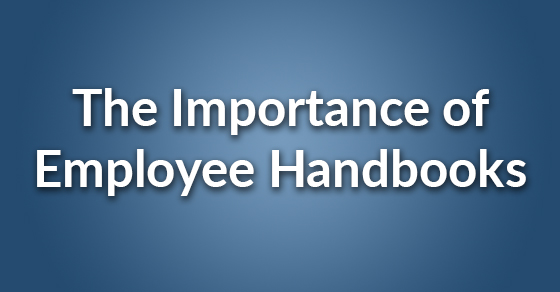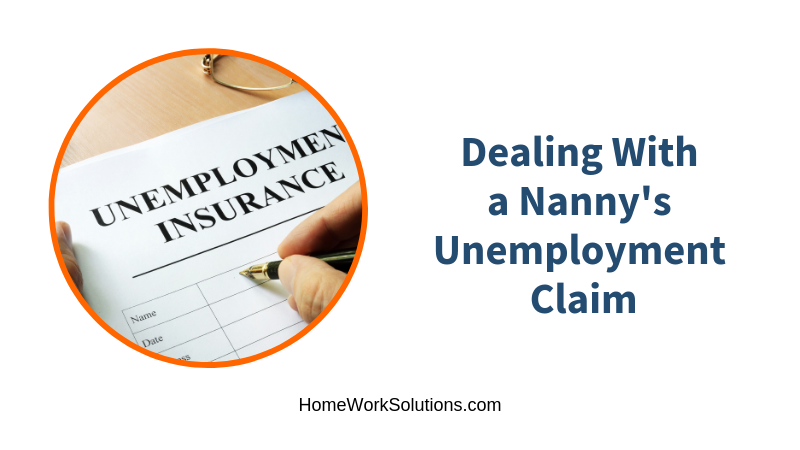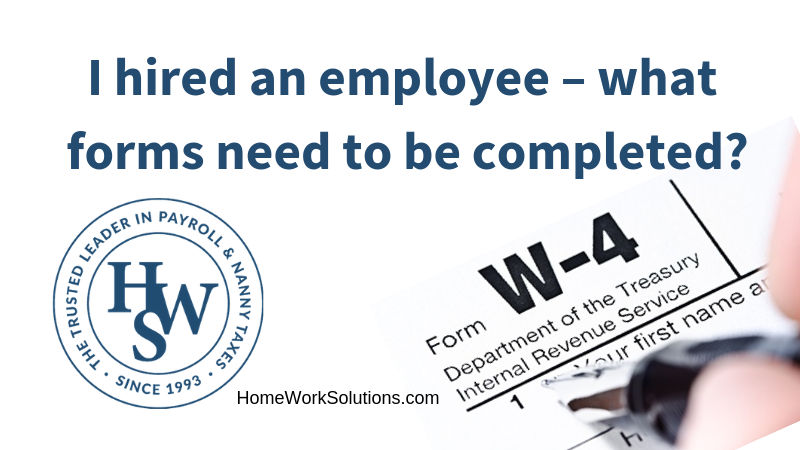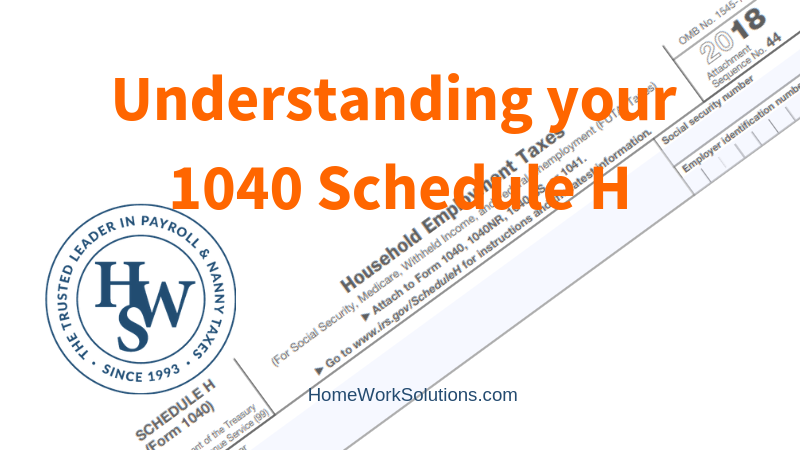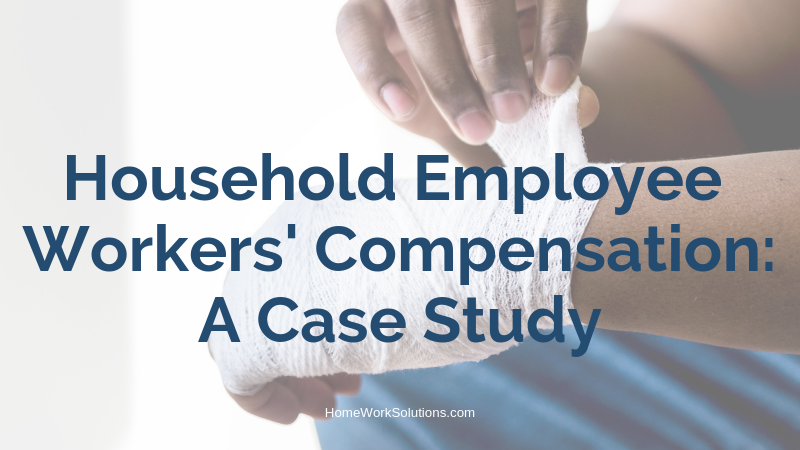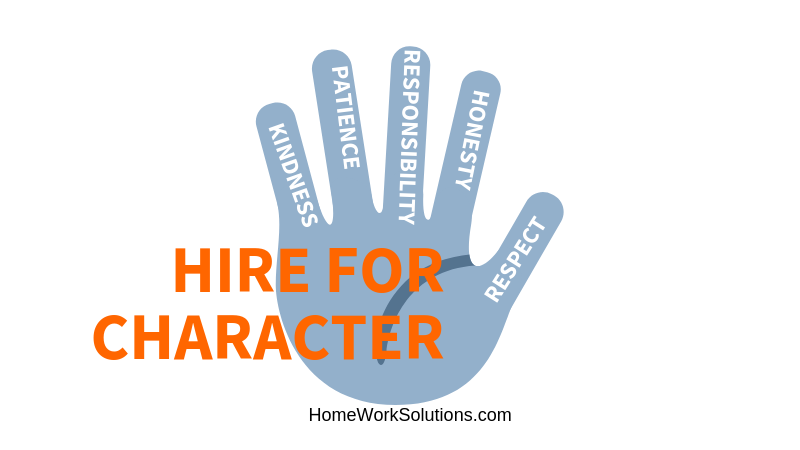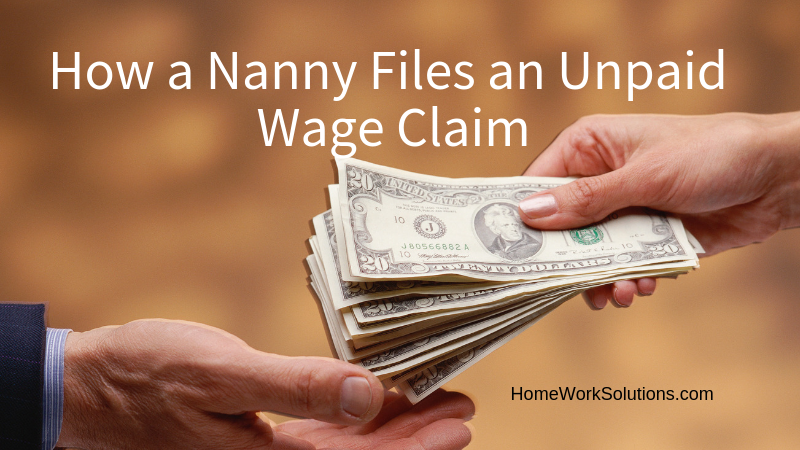Most employers have some sort of employee handbook or at least a clear cut work agreement. It goes without saying that it is extremely important to have and keep updating your employee handbook. If you don’t, or yours is out-of-date, then you may want to change that.
Read More
Topics:
nanny,
agency,
senior,
CPA
If one of your household employees has recently filed for unemployment benefits, you may have received notice from your state and be unsure of what to do. This brings up the question: what does it mean when an employee files an unemployment claim? Here we will break down some of the basics about unemployment claims and explain what’s required of you as the employer.
Read More
Topics:
nanny,
agency,
senior,
CPA
You have searched to find the right nanny or senior caregiver for your family and have found the person you want to work with. Congratulations, you have become an employer! Hopefully you have completed thorough background screening and reference checking, and you and your new employee have a written work agreement in place. Now you and your employee must complete the proper government paperwork. What forms need to be completed? The following forms below are required at the time of hire.
Read More
Topics:
nanny,
senior,
CPA
If you are a household employer and have an employee working in your home, you have a responsibility to pay and report payroll taxes, which includes filing a Schedule H form with your personal federal tax return. If you paid your employee at least $2,100 in the year, if you withheld Federal Income Taxes, or if you are liable for unemployment taxes you must file this form.
Read More
Topics:
nanny,
senior,
CPA
If you are considering hiring a new household employee, chances are, you are thinking about the many details that are involved with that. Opening your home and entrusting your loved ones to a new person is a big step and one that should be taken seriously. There should be much research and caution used. Here are some important things to keep in mind before you consider onboarding a new household employee.
Read More
Topics:
nanny,
agency,
senior
Worker’s compensation cases can get messy if they aren’t handled by the book. This client story shows the importance of purchasing a Worker’s Compensation Insurance Policy.
Read More
Topics:
nanny,
agency,
senior
Hiring someone to work one-on-one with your loved one is a very important decision that requires research and dedication. There are many caregivers out there looking for work, but which one is right for you? You may feel overwhelmed at that options, but what it really comes down to is, which person best connects with you and your family? Experience is key, but good character is what really matters. Here are some basic tips for a hiring a nanny with good character.
Read More
Topics:
nanny,
agency,
senior
Occasionally a nanny or other household employee will find themselves in a dispute with an employer, generally a former employer, over unpaid wages. Whether this be overtime that wasn’t properly compensated, failure to meet minimum wage or final wages that were not paid, there exists in every state a mechanism to file an unpaid wage claim and have the state’s Department of Labor Wage and Hour office intervene on his or her behalf. These avenues should be pursued AFTER direct attempts to resolve the situation with the employer have failed.
Read More
Topics:
nanny,
agency,
senior,
CPA
Hiring a caregiver is a very personal decision and there is a lot of different information and emotion involved. Because of that, you’ve likely spent a significant amount of time interviewing caregiver candidates to find the “right” fit. Once you have found the right person to hire to help provide care for your dad, now comes the hard work of establishing job descriptions, building solid communication, and managing the person without interfering too much. Micromanagement never yields the results you want, yet it is easy for people to get into this routine. It instead leads to higher turnover and caregivers that are demoralized and unenthusiastic about their work.
Read More
Topics:
senior
You are going to hire a nanny or senior caregiver soon. You know that interviewing can be tricky, and don't want to make a mistake in this important activity. Before you begin advertising, narrowing down your candidates and starting the interview process, it is important to do some research on what proper protocol is for what questions you can ask and what is taboo. Here are some helpful caregiver interview tips.
Read More
Topics:
nanny,
senior

